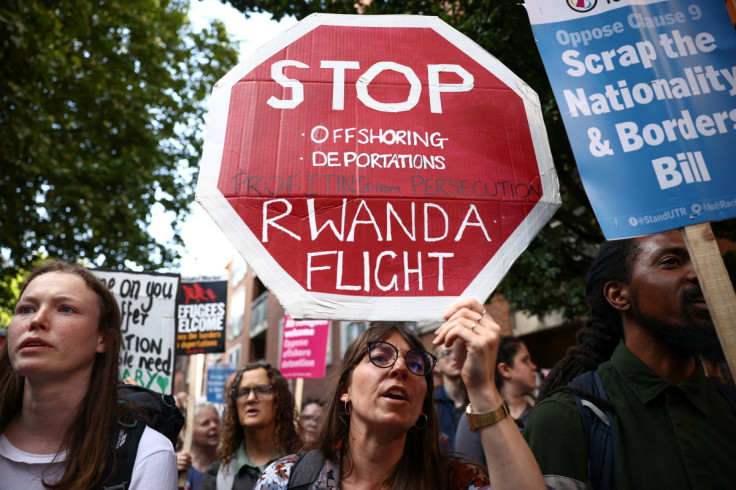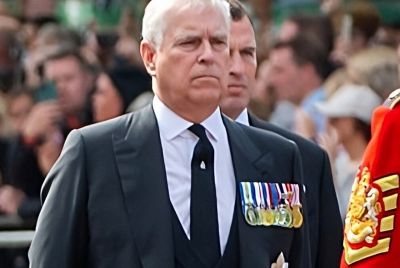UK Presses Ahead With Plan For First Migrant Deportation Flight To Rwanda

Britain's first scheduled flight taking asylum seekers to Rwanda was due to depart on Tuesday, with the government warning anyone who avoided it through last-minute legal challenges would be put on a later flight despite the outcry from critics.
Britain has struck a 120-million-pound ($148 million) deal with Rwanda to send some migrants, who had arrived illegally by crossing the Channel in small boats from Europe, to live in the landlocked African country.
The plan has horrified political opponents, charities and religious leaders who say it is inhumane. The United Nations' refugee chief called it "catastrophic", the entire leadership of the Church of England denounced it as an "immoral policy that shames Britain" and media reports have said Prince Charles has privately described the plan as "appalling".
The government says the deportation strategy is needed to stem the flow of migrants risking their lives in Channel crossings and smash the people-smuggling networks.
A government official, who asked not to be named, said there was the possibility individual legal challenges might mean the private plane the government has chartered leaves on Tuesday evening with no asylum seekers on it.
The courts have thrown out last-ditch bids by human rights groups and campaigners to halt the flight, but London's High Court is hearing further cases before it departs.
Prime Minister Boris Johnson said the legal bids were undermining the government's attempts to support safe and legal routes to come to Britain.
"We are not going to be in any way deterred or abashed by some of the criticism that has been directed upon this policy, some of it from slightly unexpected quarters, we are going to get on deliver," he told his cabinet ministers.
NEXT FLIGHT
According to government figures, more than 28,500 people were detected arriving in Britain on small boats last year. Dozens more, including women and young children, arrived on Tuesday morning, a Reuters witness in the Channel port of Dover said.
More than 130 people have been given deportation notices, with 37 originally scheduled to be removed on Tuesday. Charities have said this included people fleeing Afghanistan and Syria as well as Iran and Iraq.
However, a string of successful legal challenges has reduced that number to seven, according to charity Care4Calais. At least three High Court appeals were due to be heard on Tuesday.
The first case involved an Iranian national who has mental health problems and would be at risk of committing suicide if deported to Rwanda, his lawyer told the court.
"There will be people on this flight and if they're not on this flight, they will be on the next flight because we are determined to break the model of the appalling people traffickers," Foreign Secretary Liz Truss told Sky News. "The really important thing is that we establish the principle."
Human rights groups say the policy will put migrants at risk. The UNHCR has said Rwanda, whose own human rights record is under scrutiny, does not have the capacity to process the claims, and there is a risk some migrants could be returned to countries from which they had fled.
A full hearing to determine the legality of the policy as a whole is due in July.
Copyright Thomson Reuters. All rights reserved.



















